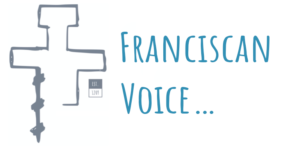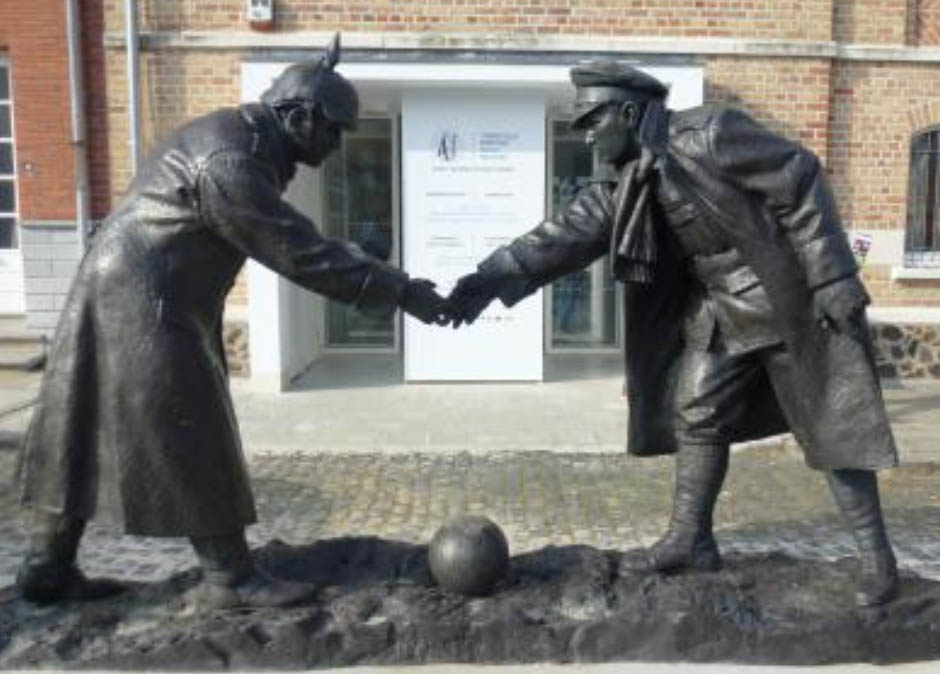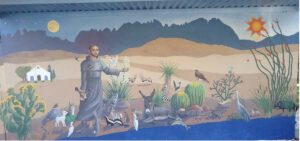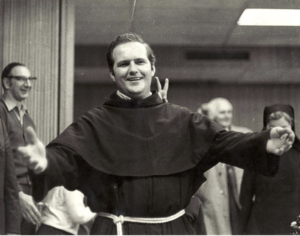What Way Shall We Go? A Time to Act
Friar Charles McCarthy continues his reflection on Pope Francis’ Let Us Dream, A Path to a Better Future.
In “All is Calm,” Peter Rothstein recounts Christmas Night, 1914. A German soldier stands on a parapet and sings Stille Nacht. Seeking Peace, not surrender, soldiers lay down their arms raising hearts and voices reclaiming humanity. Two soldier’s letters quoted in the work mused, “We achieved what even the pope could not. Peace!” Another: “What if we simply laid down our arms, turned and walked home. The war would end right here.” Soldiers rediscovered their humanity.
Francis writes, “One way Christianity has gone astray…is to forget we belong to a people.” (p. 106) We are “a people” of “many peoples.” Confronted by COVID-19’s assault we are brothers and sisters in struggle and recovery.
In Part 1, Francis wrote “this is a time to recover values, …return to what is worthwhile. Life, nature, the dignity of the person, of labor, relationship…are key human values. All true values, … are non-negotiable.” (p. 52)
Francis calls us to live in solidarity and move away from “isolated consciences”. “God’s People in Jesus mission transcend boundaries of culture and geography. The common good supersedes…particular people. A Christian defends individual rights and freedoms but can never be an individualist. A Christian loves and serves her country with patriotic feeling but is not a nationalist.” (p. 105) Solidarity embraces us by bonds of reciprocity – sadly absent from contemporary narratives – liberal or populist.” (p. 107)
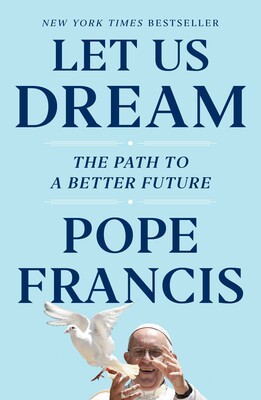
“Western politics views society as an aggregate of coexisting interests, suspicious of language that values the bonds of community and culture, [with] worldviews deforming the meaning of the word ‘people’ by hitching it to ideologies that focus on perceived enemies, internal and external.” (p. 107) Recognizing “individual conscience” and “coexisting Interests” to be rife within economic and political systems, Francis recognizes these faults within religious systems and churches as well.
Francis calls the People of God, to certain specific areas:
- “The heart of Christianity is God’s love for all peoples and our love for our neighbors. Migration is not a threat to Christianity.” (p. 119) Our challenge is to attend with compassion, hospitality and healing.
- “I am concerned about a…media culture that uproots …the younger generation from their traditions, history, culture and religious heritage. An uprooted person is easy to dominate.” (109) Diminishment of language, culture and identity denigrates personal worth.
- “Obsession with profit weakens the institutions that can protect a people from reckless economic interests and excessive concentration of power. Increasing social conflicts fed by inequality and injustice cause the fraying of bonds of belonging.” (108) “We have it wrong…: workers are treated as the expendable element…while shareholders –maximizing profit – call the shots. (p.131 pp.117 & 125)
- “A fantasy of national-populism in Christian majority countries [defends their] “Christian Civilization” from perceived enemies, whether Islam, Judaism, the EU or the UN. People vote for populists to protect religious identities unconcerned that fear and hatred of the other cannot be reconciled with the Gospel.” (p.119)
- Society’s health is judged at the margins. “A periphery that is abandoned…shows an unstable…society. ‘Where danger is, also grows the saving power.’ By opening to the margins, we unleash change.” (p.126)
- Francis focuses energy on Popular Movements calling for collaboration attending and responding to the “three Ls:” Land, Lodging and Labor. “If we put land, decent lodging and labor at the center of our actions, we will create a virtuous cycle…to restore the dignity of peoples.” (p.128-131)
“All Is Calm” recalls a night when people chose humanity over destruction, solidarity over being subordinate. Francis calls us to live in the light of the freedom of the Gospel. Can we be the ones to disarm and seek to be one?
– friar Charles McCarthy OFM Conv.
